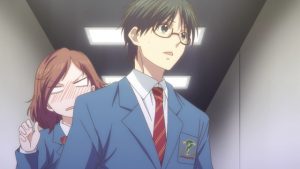 I’ve really run the gamut with series review posts this week. You had a proper conclusion to a finished manga in Hi Score Girl, a (moderately) surprising death row reprieve with Beastars, and a grievous breach of decency and justice with Hoshiai no Sora. And of course tomorrow we have Vinland Saga, a case where somewhat reliable rumors of a second season are rampant but nothing whatsoever is official, so fans are on pins and needles. But really, Kono Oto Tomare is different from any of those.
I’ve really run the gamut with series review posts this week. You had a proper conclusion to a finished manga in Hi Score Girl, a (moderately) surprising death row reprieve with Beastars, and a grievous breach of decency and justice with Hoshiai no Sora. And of course tomorrow we have Vinland Saga, a case where somewhat reliable rumors of a second season are rampant but nothing whatsoever is official, so fans are on pins and needles. But really, Kono Oto Tomare is different from any of those.
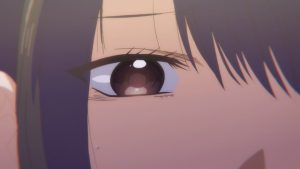 Superficially this is a familiarly depressing – or at the very least bittersweet – occasion. We have an adaptation of a wonderful ongoing manga ending in the middle, a sad story anime fans know too well. Bur while I am sad Kono Oto Tomare is ending, I can’t find any dissatisfaction with the circumstances. I mean truthfully – could any fan of the manga ask for a more respectful and powerful conclusion? And the truth of the matter is that while I love the manga and will continue to follow it, the anime ended at what’s probably the apex of the story. At the very least, it was a perfect stopping point – one which was both triumphant and felt like a real ending.
Superficially this is a familiarly depressing – or at the very least bittersweet – occasion. We have an adaptation of a wonderful ongoing manga ending in the middle, a sad story anime fans know too well. Bur while I am sad Kono Oto Tomare is ending, I can’t find any dissatisfaction with the circumstances. I mean truthfully – could any fan of the manga ask for a more respectful and powerful conclusion? And the truth of the matter is that while I love the manga and will continue to follow it, the anime ended at what’s probably the apex of the story. At the very least, it was a perfect stopping point – one which was both triumphant and felt like a real ending.
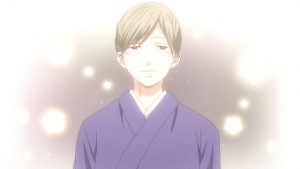 Naturally for manga readers there was no suspense as to what was going to happen with the judging (not that it lessened the impact of seeing it on-screen), but I can’t imagine there was all that much for the new viewers either. It was much clearer in the anime version (for obvious reasons) that Tokise gave the best performance than it was in the manga, but judging is something that can never be taken for granted. There are always going to be those who value proficiency over artistry, technique over soul – in music, in figure skating, in life. But it would have been a travesty if the decision had gone any other way, and I think even Hakuto and Himesaka knew that.
Naturally for manga readers there was no suspense as to what was going to happen with the judging (not that it lessened the impact of seeing it on-screen), but I can’t imagine there was all that much for the new viewers either. It was much clearer in the anime version (for obvious reasons) that Tokise gave the best performance than it was in the manga, but judging is something that can never be taken for granted. There are always going to be those who value proficiency over artistry, technique over soul – in music, in figure skating, in life. But it would have been a travesty if the decision had gone any other way, and I think even Hakuto and Himesaka knew that.
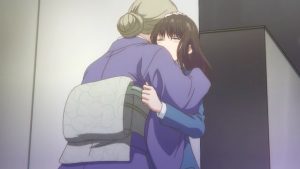 Music is a wonderful thing for countless reasons, and certainly its ability to bring people together is one of them. I think this is something the judges (the smart ones, anyway – especially Matsunaga-san) factored into their decision, and the example of Satowa and her mother is living proof. That performance of “Tenkyuu” allowed Satowa to say what she’d never been able to say in words. “Ryuuseigun” allowed Chika to tell his grandfather in no uncertain terms how much he loved him, and that he’d been listening to every word the old man said about both the koto and the act of playing it with a group of friends.
Music is a wonderful thing for countless reasons, and certainly its ability to bring people together is one of them. I think this is something the judges (the smart ones, anyway – especially Matsunaga-san) factored into their decision, and the example of Satowa and her mother is living proof. That performance of “Tenkyuu” allowed Satowa to say what she’d never been able to say in words. “Ryuuseigun” allowed Chika to tell his grandfather in no uncertain terms how much he loved him, and that he’d been listening to every word the old man said about both the koto and the act of playing it with a group of friends.
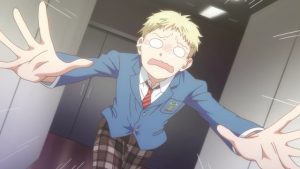 You can’t dismiss what Tokise did as simple pandering (as the judge who favored Himesaka tried to do). Indeed, as Takinami-sensei notes pieces that are easy to listen to are often dismissed as superficial or lightweight (in much the same way comedy is often dismissed as compared to drama). The ability to express your personality and your emotions so eloquently through a performance is something great musicians aspire to all their lives. It can’t be faked, and it can’t be cheat-coded. You only get there through the integrity of your feelings and the strength of your commitment to the art.
You can’t dismiss what Tokise did as simple pandering (as the judge who favored Himesaka tried to do). Indeed, as Takinami-sensei notes pieces that are easy to listen to are often dismissed as superficial or lightweight (in much the same way comedy is often dismissed as compared to drama). The ability to express your personality and your emotions so eloquently through a performance is something great musicians aspire to all their lives. It can’t be faked, and it can’t be cheat-coded. You only get there through the integrity of your feelings and the strength of your commitment to the art.
 Indeed justice was served here, and even if I’m not unbiased I’m still confident I’m right. I still felt for Hakuto and Taishin-sensei though. It’s remarkable how much of an impact he made despite only being in the story for a few episodes – if Sakura-sensei ever did a spinoff manga, he’d be my pick as a protagonist. The dream goes on for Tokise, the fairytale of childhood allowed to spin its story for a few more months. Satowa and Chika each have their special moment with the one they sent out their performances to, and Akira finally has the chance to connect with her brother over the music that brought them together, then drove them apart. There are a ton of loose ends here of course, but this is just a way station in the overall story. Even so it functions as all great endings do – offering both finality and an open-ended sense of possibility.
Indeed justice was served here, and even if I’m not unbiased I’m still confident I’m right. I still felt for Hakuto and Taishin-sensei though. It’s remarkable how much of an impact he made despite only being in the story for a few episodes – if Sakura-sensei ever did a spinoff manga, he’d be my pick as a protagonist. The dream goes on for Tokise, the fairytale of childhood allowed to spin its story for a few more months. Satowa and Chika each have their special moment with the one they sent out their performances to, and Akira finally has the chance to connect with her brother over the music that brought them together, then drove them apart. There are a ton of loose ends here of course, but this is just a way station in the overall story. Even so it functions as all great endings do – offering both finality and an open-ended sense of possibility.
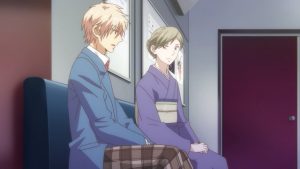 Kono Oto Tomare isn’t perfect, either as a manga or anime. I still feel that some of Takezou’s promise as a character has yet to be fulfilled, and he was reduced to the role of passenger too often over the course of the story. There are moments when the modest budget makes itself unmistakable, though I wholly approve of the way Platinum Vision saved their resources for when they really needed them. On the whole, though, it’s a superb adaptation – faithful without being slavish, perfectly paced. Most importantly it did what all great anime adaptations do in using the advantages of the medium to make the series come alive in ways it can’t on paper. And that’s even more crucial with a series focused on the performing arts.
Kono Oto Tomare isn’t perfect, either as a manga or anime. I still feel that some of Takezou’s promise as a character has yet to be fulfilled, and he was reduced to the role of passenger too often over the course of the story. There are moments when the modest budget makes itself unmistakable, though I wholly approve of the way Platinum Vision saved their resources for when they really needed them. On the whole, though, it’s a superb adaptation – faithful without being slavish, perfectly paced. Most importantly it did what all great anime adaptations do in using the advantages of the medium to make the series come alive in ways it can’t on paper. And that’s even more crucial with a series focused on the performing arts.
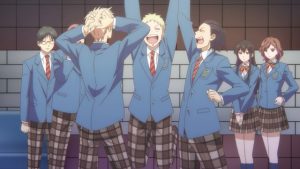 Honest, straightforward, totally lacking in BS – that’s Kono Oto Tomare. As I noted in my 2019 Top 10 entry yesterday this show featured possibly my two favorite scenes of the year in anime – and certainly the most powerful. And no anime impacted me emotionally more than KoT did – the themes of friendship, love, and forgiveness are as universal as it gets. Kono Oto Tomare! takes no short cuts and employs no trickery – you always know exactly what it’s about and where it’s coming from, and that’s a big reason why it works so well as a story. It’s not slick of cutting-edge in any way, but for honesty and sheer emotional intensity it has few peers.
Honest, straightforward, totally lacking in BS – that’s Kono Oto Tomare. As I noted in my 2019 Top 10 entry yesterday this show featured possibly my two favorite scenes of the year in anime – and certainly the most powerful. And no anime impacted me emotionally more than KoT did – the themes of friendship, love, and forgiveness are as universal as it gets. Kono Oto Tomare! takes no short cuts and employs no trickery – you always know exactly what it’s about and where it’s coming from, and that’s a big reason why it works so well as a story. It’s not slick of cutting-edge in any way, but for honesty and sheer emotional intensity it has few peers.
Epilogue:


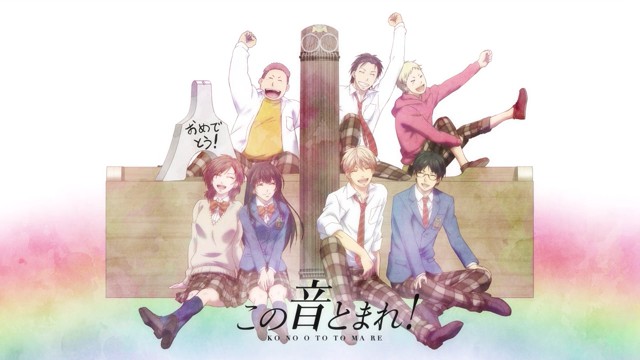
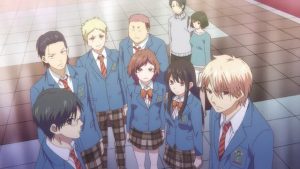

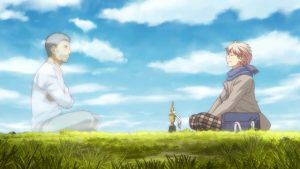
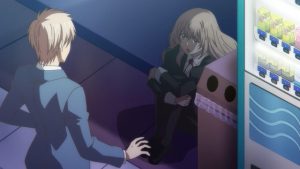
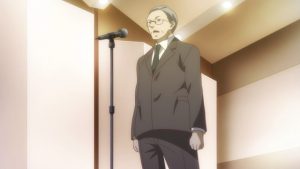
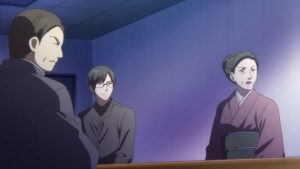

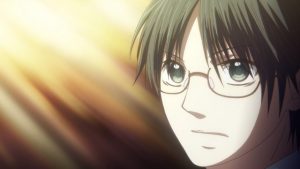
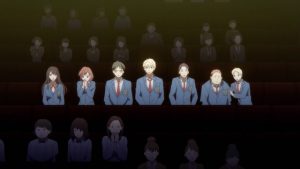
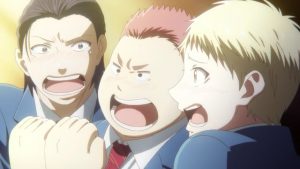
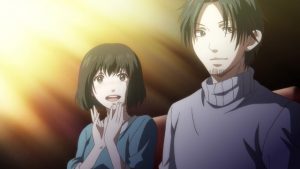
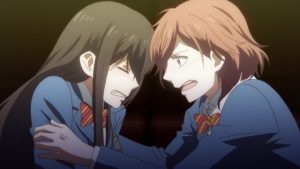
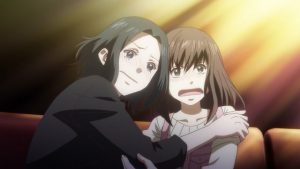
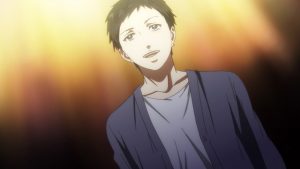
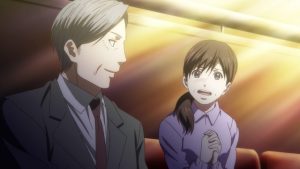
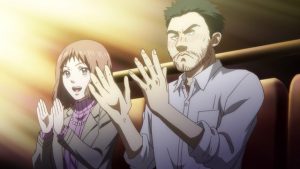

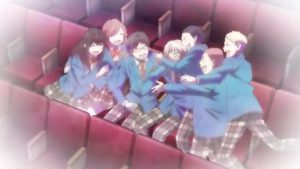
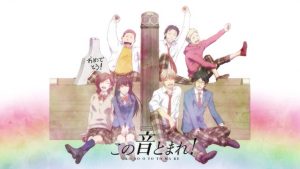

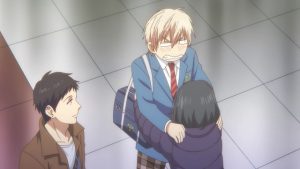
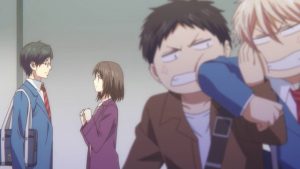
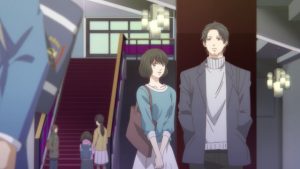

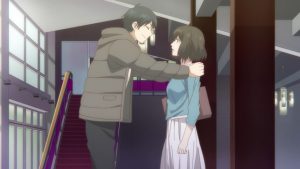
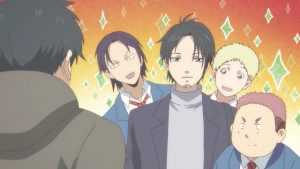



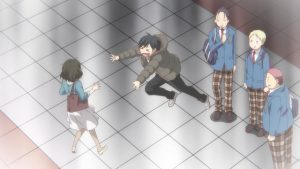

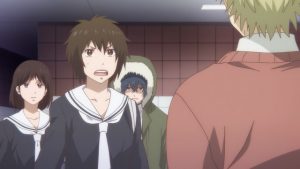
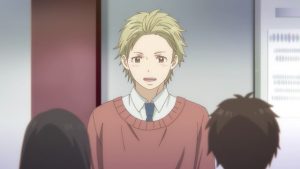

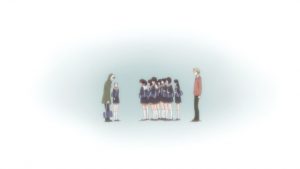

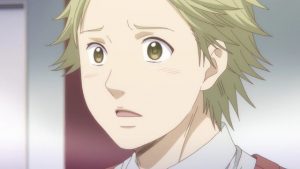
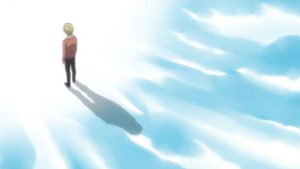
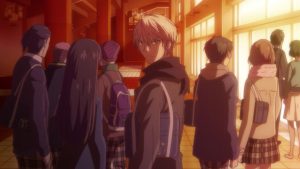


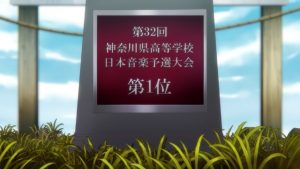
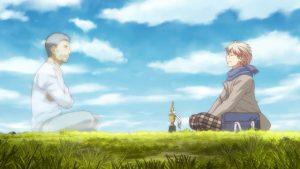
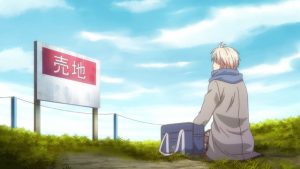
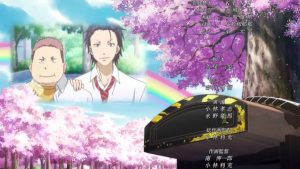
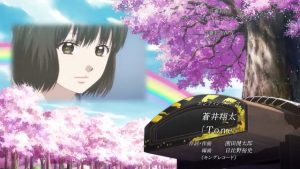

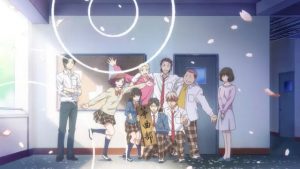
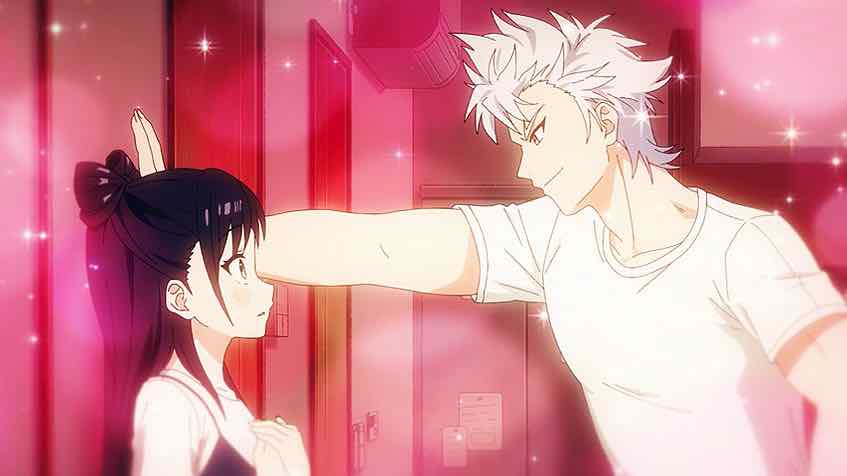
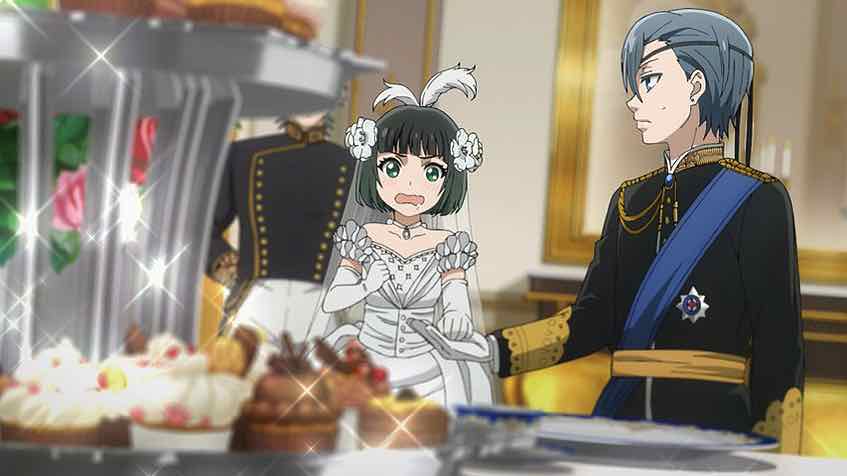
Llama
December 29, 2019 at 5:36 pmEr, Enzo- it’s Tenkyuu, not Tenryuu.
I alternated between crying and cheering during this episode. This is an adaptation with with a lot of love from every corner put into it. I’ll be scooting off to read the manga now.
(Side note: I wish KENN was more shows I actually cared to watch- no one does sunshiny exuberance like him, and Keishi’s brief appeareance on screen put a big dumb grin on my face. Enoki Junya too- what an unshowy, assured performance.)
I take that your issues with Takezo’s screentime aren’t specific to the material covered by the anime?
Guardian Enzo
December 29, 2019 at 5:47 pmNo, as I said neither the manga or anime is perfect and that part is the manga.
Alessia
March 23, 2020 at 7:14 amMa non è giusto, dovevano far vedere anche quando vanno ai Nazionali :'( :'( :'(
Erza
April 15, 2020 at 2:12 pmI know right Alessia they should have to show them going to nationals and hopefully winning 1st place at nationals
Tyler
June 30, 2020 at 1:57 pmIt’s amazing! I’m a musician and composer so this hits all the right notes (sad pun I know) for me. Is it for sure never going to have a 3rd season? With more source material it is feasible that it comes back Eventually, right?? I mean, they still have more to tell!!
Guardian Enzo
June 30, 2020 at 3:01 pmIt seems very unlikely the anime will ever see a continuation. The manga is fairly popular but not so much that it’s a big cash generator on its own, and there are really no other obvious channels for KoT to make money. It’s like the music version of Baby Steps in that way (and in some other ways, too).
Tyler
June 30, 2020 at 3:02 pmJust finished the series. The last piece they played was one of the most moving pieces of music and I am ugly crying now. Such a beautifully executed anime. Sure it has flaws, but it has such heart. I hope the story will continue!